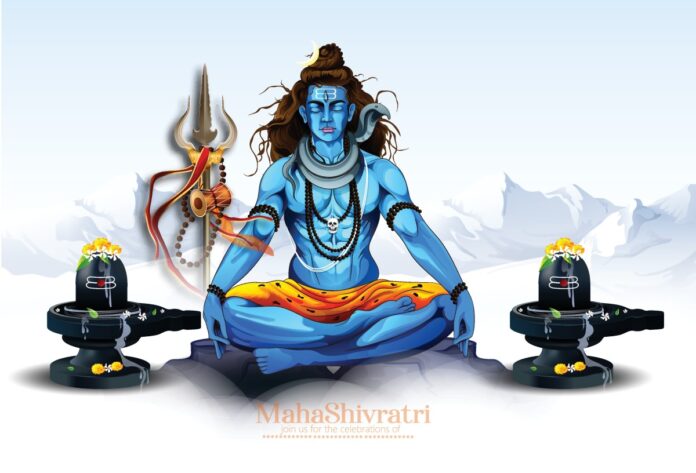Why Mahashivratri is Celebrated
Mahashivratri, or the “Great Night of Lord Shiva,” is one of the most significant festivals in Hinduism. It is celebrated annually in honor of Lord Shiva, the deity of destruction and transformation, who is also considered the supreme god within Shaivism, one of the major traditions within Hinduism. Mahashivratri falls on the 14th day of the dark fortnight in the month of Phalguna (February or March) according to the Hindu lunar calendar. This auspicious day holds great spiritual and mythological significance for millions of devotees across the world.
Also Read: Mahashivratri 2024: Date, Story, Pooja Timings
Mahashivratri History
- Legend of the Samudra Manthan: One of the most popular legends associated with Mahashivratri is the churning of the cosmic ocean of milk, known as the Samudra Manthan. According to this mythological tale, the gods and demons churned the ocean to obtain the nectar of immortality, known as amrita. During the churning process, a pot of poison, known as halahala, emerged from the ocean, threatening to destroy the world. Lord Shiva came to the rescue and drank the poison to save the universe. The poison turned his throat blue, earning him the name Neelkanth, or “the one with the blue throat.” Mahashivratri is believed to be the day when Lord Shiva consumed the poison.
- Wedding of Lord Shiva and Goddess Parvati: Another significant mythological event associated with Mahashivratri is the wedding of Lord Shiva and Goddess Parvati. It is believed that Lord Shiva and Goddess Parvati got married on this auspicious day. Therefore, Mahashivratri is also considered a celebration of marital bliss and the union of Shiva and Shakti, the feminine divine.
Importance of Mahashivratri
- Spiritual Significance: Mahashivratri is considered a powerful night for spiritual growth and transformation. It is believed that on this night, the planetary positions are such that there is a natural upsurge of energy in the human system, making it conducive for spiritual practices.
- Seeking Lord Shiva’s Blessings: Devotees observe Mahashivratri as a way to seek the blessings of Lord Shiva for peace, prosperity, and success in their lives. It is believed that sincere prayers and penance on this day can lead to the fulfillment of one’s wishes and desires.
- Renewal and Rejuvenation: Mahashivratri is also seen as a time for renewal and rejuvenation, both on a spiritual and personal level. It is an opportunity to let go of past grievances, purify the mind and body, and start afresh with positive energy.
Mahashivratri Celebrations in India
- Nightlong Vigil: One of the most common practices during Mahashivratri is observing a nightlong vigil, known as jagaran, where devotees stay awake throughout the night, singing hymns and chanting prayers in praise of Lord Shiva.
- Fasting: Many devotees observe a strict fast on Mahashivratri, abstaining from food and water for the entire day and night. Fasting is believed to purify the body and mind and help devotees focus their energy on spiritual practices.
- Visiting Shiva Temples: Devotees throng to Shiva temples across the country to offer prayers and seek blessings. Some of the most famous temples, such as Kashi Vishwanath Temple in Varanasi, Somnath Temple in Gujarat, and Lingaraj Temple in Bhubaneswar, witness a large number of devotees on this day.
- Abhishekam: Abhishekam, or the ritual bathing of the Shiva Lingam with milk, honey, yogurt, ghee, and water, is a common practice on Mahashivratri. It is believed to purify the soul and bring prosperity.
- Offerings: Devotees offer bael leaves, flowers, fruits, and other traditional items to Lord Shiva as a symbol of devotion and gratitude.
What to Do on Mahashivratri?
- Visit a Shiva Temple: Visit a nearby Shiva temple and participate in the special prayers and rituals conducted on Mahashivratri.
- Observe Fasting: If you are physically able, consider observing a fast on Mahashivratri as a way to purify your body and mind.
- Chant Mantras: Spend time chanting Shiva mantras such as the Maha Mrityunjaya Mantra or the Shiva Panchakshari Mantra to invoke the blessings of Lord Shiva.
- Meditate: Engage in meditation to connect with the divine and seek spiritual enlightenment.
What Is the Purpose of Mahashivratri Fasting?
- Purification: Fasting on Mahashivratri is believed to purify the body and mind, allowing devotees to focus their energy on spiritual practices and prayer.
- Detoxification: Fasting is seen as a way to detoxify the body, giving the digestive system a much-needed rest and allowing the body to eliminate toxins.
- Spiritual Discipline: Fasting is also considered a form of spiritual discipline, helping devotees control their senses and desires.
Why Should We Not Sleep on Shivratri?
- Staying Awake for Vigil: The tradition of staying awake on Mahashivratri is based on the belief that Lord Shiva remains awake and vigilant on this night, protecting his devotees from harm.
- Spiritual Significance: Staying awake is seen as a form of penance and devotion, showing dedication to Lord Shiva and a willingness to endure discomfort for spiritual growth.
- Energy Alignment: It is believed that staying awake throughout the night aligns the body’s energy with the natural energy flow of the universe, enhancing spiritual experiences and insights.
Is It Mandatory to Be Awake on Mahashivratri?
- Personal Choice: While staying awake is a traditional practice on Mahashivratri, it is not mandatory. Devotees have the freedom to choose whether or not to observe a nightlong vigil based on their personal beliefs and circumstances.
- Focus on Devotion: The essence of Mahashivratri lies in devotion and seeking the blessings of Lord Shiva. Whether one stays awake or not, the sincerity and purity of one’s prayers are what truly matter.
In conclusion, Mahashivratri is a festival of great spiritual significance, offering devotees an opportunity to seek the blessings of Lord Shiva, purify their minds and bodies, and renew their spiritual journey. Whether through fasting, prayer, meditation, or staying awake throughout the night, Mahashivratri is a time for devotees to deepen their connection with the divine and experience spiritual growth and transformation.





